new posts in all blogs
Viewing: Blog Posts Tagged with: Virginia Woolf, Most Recent at Top [Help]
Results 26 - 35 of 35
How to use this Page
You are viewing the most recent posts tagged with the words: Virginia Woolf in the JacketFlap blog reader. What is a tag? Think of a tag as a keyword or category label. Tags can both help you find posts on JacketFlap.com as well as provide an easy way for you to "remember" and classify posts for later recall. Try adding a tag yourself by clicking "Add a tag" below a post's header. Scroll down through the list of Recent Posts in the left column and click on a post title that sounds interesting. You can view all posts from a specific blog by clicking the Blog name in the right column, or you can click a 'More Posts from this Blog' link in any individual post.

By: Lauren,
on 1/25/2011
Blog:
OUPblog
(
Login to Add to MyJacketFlap)
JacketFlap tags:
History,
Literature,
UK,
birthday,
virginia,
Giveaway,
maiden,
twitter,
tweet,
woolf,
Virginia Woolf,
OWC,
this day in history,
oxford world's classics,
tweeters,
*Featured,
owc_oxford,
woolf’s,
Add a tag
This day in 1882, the brilliant and talented Virginia Woolf was born, and to celebrate it, a few lucky tweeters will win a copy of one of her books. When you see,
“It’s Virginia Woolf’s birthday!”
just retweet it, along with the answer to this trivia question:
What was Virginia’s mother’s maiden name?
International readers, keep your eyes on @OWC_Oxford and RT before 3pm GMT! Live in the US? Follow @OUPblogUSA. You’ll have until 3pm ET.
Winners will be announced on Wednesday and have their choice of
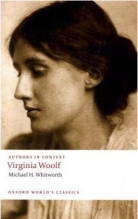
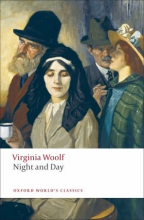
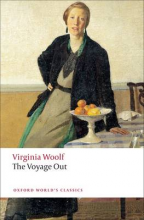
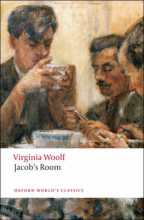

I’ve been plugging away at Hermione Lee’s Edith Wharton since the end of December of 2009. I read a big chunk then and after that set it aside and picked away at it from time to time. Now I’ve gotten back into and am reading it regularly weekends and evenings. And enjoying it very much.
Wharton knew several people Virginia Woolf also knew and I wondered if they had ever met. I’ve read biographies of Woolf and don’t recall it being mentioned. Now I know the answer. They never met. Wharton despised all things Bloomsbury which she associated with “lesbianism, feminism, bad manners, socialism and ‘Bolshevism,’ obscenity, exhibitionism and experimental art.” She did not like stream-of-conciousness writing and a good many of the techniques used by most modern writers. She thought modernism was formulaic and over-theorised and tended to get it tangled up in her ideas of class, race, and democracy.
Mary Berensen tried to persuade her to read Orlando. The novel was illustrated with “alluring” pictures of Vita Sackville-West and Wharton told Mary that it made her “quite ill” to look at it. She said she would read it but I don’t know if she did. I suspect that if she did, she hated it.
In 1925 both Wharton and Woolf had new books published. Wharton was resentful and prickly that her book, The Mother’s Recompense was called “old-fashioned” and Woolf’s Mrs. Dalloway was praised as being “brilliant experimentalism.”
Woolf really ticked her off that same year when she published a somewhat condescending essay on American fiction in the Saturday Review. Wharton wrote to a friend:
Mrs. Virginia Woolf writes a long article…to say that no interesting American fiction is, or should be, written in English; and that Henry Hergesheimer [sic] and I are negligible because we have nothing new to give–not even a language! Well–such discipline is salutary.
I had to laugh because Woolf and Wharton are both snobs. Their differences seem to be generational. Wharton resents not being respected for her age and wisdom and Woolf, as younger generations often do, just wants the old fogey to get out of the way.
So now my question is answered. Woolf and Wharton never met but they knew enough about each other that if they had met it would have been with icy politeness and a hasty departure.
Filed under:
In Progress,
Memoir/Biography,
Virginia Woolf 





There are some books that shouldn’t be rushed like The Complete Shorter Fiction of Virginia Woolf. I’m not even going to say how long I didn’t rush because it stretches beyond months and into the years category.
Part of what took me so long is not the intensity often present in Woolf’s writing, though that frequently caused me to put the book down after just one story. No what took so long is that this book is filled with not only Woolf’s published stories but all of her unpublished bits and pieces too and while any scrap of Woolf’s fiction far exceeds anything I could write after repeated revisions, a lot of the stuff in this book wasn’t very good. There were quite a few sketches of different characters at Mrs. Dalloway’s party. While Mrs. Dalloway is among my top ten favorite books, the sketches were only mildly to moderately interesting and didn’t add anything to my enjoyment of the novel.
Then there is the unevenness of the book. You have brilliant stories like The Mark on the Wall and Lappin and Lapinova alongside half-finished “portraits,” unfinished stories and complete stories that are obviously early drafts.
The book has several appendices and a hefty notes section that details the history of the manuscript from which the story is printed. At first this was really interesting but after awhile I stopped looking at the notes because they didn’t add anything to the story and I discovered that I didn’t really care about all those details.
So while I enjoyed many of these stories I would have much preferred reading a collection of her finished short fiction. I think this “complete” book is for those who, after reading everything else just can’t get enough. And even though I love Woolf, I’m not the sort of reader who wants to read everything a writer ever wrote, including her grocery lists.
I am disappointed that I wasn’t bowled over, but I am glad to have finally finished the book. It was beginning to weigh heavy on my mind seeing it there day after day in my in progress pile.
Posted in Books, Reviews, Short Stories, Virginia Woolf






::sounds a fanfare::
Without further ado, I bring you the greatest gift a writer can ever receive:
Nice article (from the New Scientist magazine) about Virginia Woolf and science fiction (thanks Robin)
I would have thanked you for your book before, but I have been very busy and have only just had time to read it. I don't suppose that I have understood more than a small part - all the same I have understood enough to be greatly interested, and elated too, since sometimes it seems to me that you are grasping ideas that I have tried to express, much more fumblingly, in fiction. But you have gone much further and I can't help envying you - as one does those who reach what one has aimed at.
Many thanks for giving me a copy,
yours sincerely,
Virginia Woolf
This was Virginia Woolf's reply to the influential science fiction writer Olaf Stapledon after he had sent her a copy of his recently published novel Star Maker. In an earlier exchange of letters, she made it clear that she had also enjoyed previous works of his, probably including Last and First Men from 1931. These two novels, Stapledon's masterpieces, are enduring monuments of science fiction and of British literature generally. Within a decade of Edwin Hubble's discovery of the red shift, which revealed the universe to be vastly bigger than anyone had imagined, Stapledon's work compressed an entire poetic history of humanity and the cosmos into two slight volumes (more...

By: Megan,
on 6/3/2009
Blog:
OUPblog
(
Login to Add to MyJacketFlap)
JacketFlap tags:
Dance,
the,
Conference,
Theater,
To,
Lighthouse,
University,
Woolf,
Stephen,
Pelton,
Fordham,
Music,
events,
Literature,
new york,
A-Featured,
Virginia,
Princeton,
Leisure,
Virginia Woolf,
Add a tag
Megan Branch, Intern
In addition to all my blogging and publicity intern duties here at OUP over the past six months, I’ve also been interning for the 19th Annual Virginia Woolf Conference. The Conference is held at a different university every year and this year it just happens to be taking place in New York. The majority of those attracted to the Woolf Conference are Woolf scholars, but this year there is something for the rest of us: there’s going to be a band.
The band is called Princeton and they almost never make their way to the East Coast, so their one-night-only performance at the Woolf Conference is even more special. The band is made up of 3 guys based in Los Angeles who sound like a cross between The Shins, Sufjan Stevens, and a library. Princeton write and perform music based on the lives and work of the members of the Bloomsbury Group that included Virginia Woolf, Leonard Woolf, Lytton Strachey and John Maynard Keynes. One of my favorite songs from Princeton’s Bloomsbury EP, “The Waves”, shows off what they do best. The song pairs heartbreaking lyrics, detailing Woolf’s last thoughts before her suicide, with music so upbeat that it’s practically bursting with sunshine. Princeton’s music makes you happy, and then it makes you think.
For the Woolf Conference, Princeton will be playing all of their songs from the Bloomsbury EP and have collaborated with the Stephen Pelton Dance Theater to produce “Lytton/Carrington”, influenced by Bloomsbury member Lytton Strachey’s unique relationship with the painter Dora Carrington. Also premiering at the Woolf Conference is the dance theatre piece “it was this: it was this:”, choreographed by Stephen Pelton, which uses movement to illustrate Woolf’s use of punctuation in one paragraph of To the Lighthouse.
Princeton and the Stephen Pelton Dance Theatre will be performing in Fordham University’s Pope Auditorium, 113 W. 60th St, on June 5th at 8 PM. Tickets will be available at the door for $20.
You can learn more about the 19th Annual Virginia Woolf Conference here.
See for yourself how awesome Princeton and the Stephen Pelton Dance Theater are.
And here’s the music video for my favorite Princeton song, “The Waves.”
Click here to view the embedded video.

The Julia Briggs Memorial Prize 2009 will be awarded to the top essay on the topic of Virginia Woolf and the Common Reader in a competition sponsored by the Virginia Woolf Society of Great Britain. The competition is being held in memory of noted Woolf scholar Julia Briggs, who died in August (via Blogging Woolf).
Virginia Woolf has an odd short story called “A Society.” The plot is about a group of girls who form a society. They vow that none of them will marry or have children until they can determine what men have been doing all the this time and whether it was worth it for women to [...]
I've just been sent a copy of Manuscript Genetics: Joyce's Know-how, Beckett's Nohow by Dirk van Hulle (University Press of Florida; I was also kindly sent Cannibal Joyce). I have precious little idea what "manuscript genetics" is/are, so, before I've read it, here is what the UPF website has to say about van Hulle's book:
By taking the principles of manuscript genetics and using them to engage in a comparative study of James Joyce and Samuel Beckett, Dirk Van Hulle has produced a provocative work that re-imagines the links between the two authors. His elegant readings reveal that the most striking similarities between these two lie not in their nationality or style but in their shared fascination with the process of revision.
Van Hulle's thoughtful application of genetic theory -- the study of a work from manuscript to final form in its various iterations -- marks a new phase in this dynamic field of inquiry. As one of only a handful of books in English dealing with this emerging area of study, Manuscript Genetics: Joyce's Know-How, Beckett's Nohow will be indispensable not only to Joyce and Beckett scholars but also to anyone interested in genetic criticism.
Indispensable: you heard the man!
The book opens with a nice epigraph quoting Virginia Woolf:
It is doubtful whether in the course of the centuries, though we have learnt much about making machines, we have learnt anything about making literature. We do not come to write better; all that we can be said to do is to keep moving, now a little in this direction, now in that.
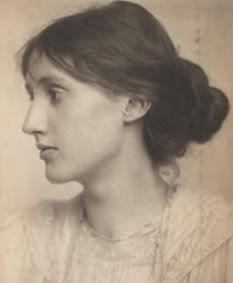
"Every secret of a writer's soul, every experience of his life,
every quality of his mind is written large in his works."
"Masterpieces are not single and solitary births;
they are the outcome of many years of thinking in common,
of thinking by the body of the people, so that the experience
of the mass is behind the single voice."
"The history of men's opposition to women's emancipation
is more interesting perhaps than the story of that emancipation
itself."
~ Virginia Woolf (1882-1941)








